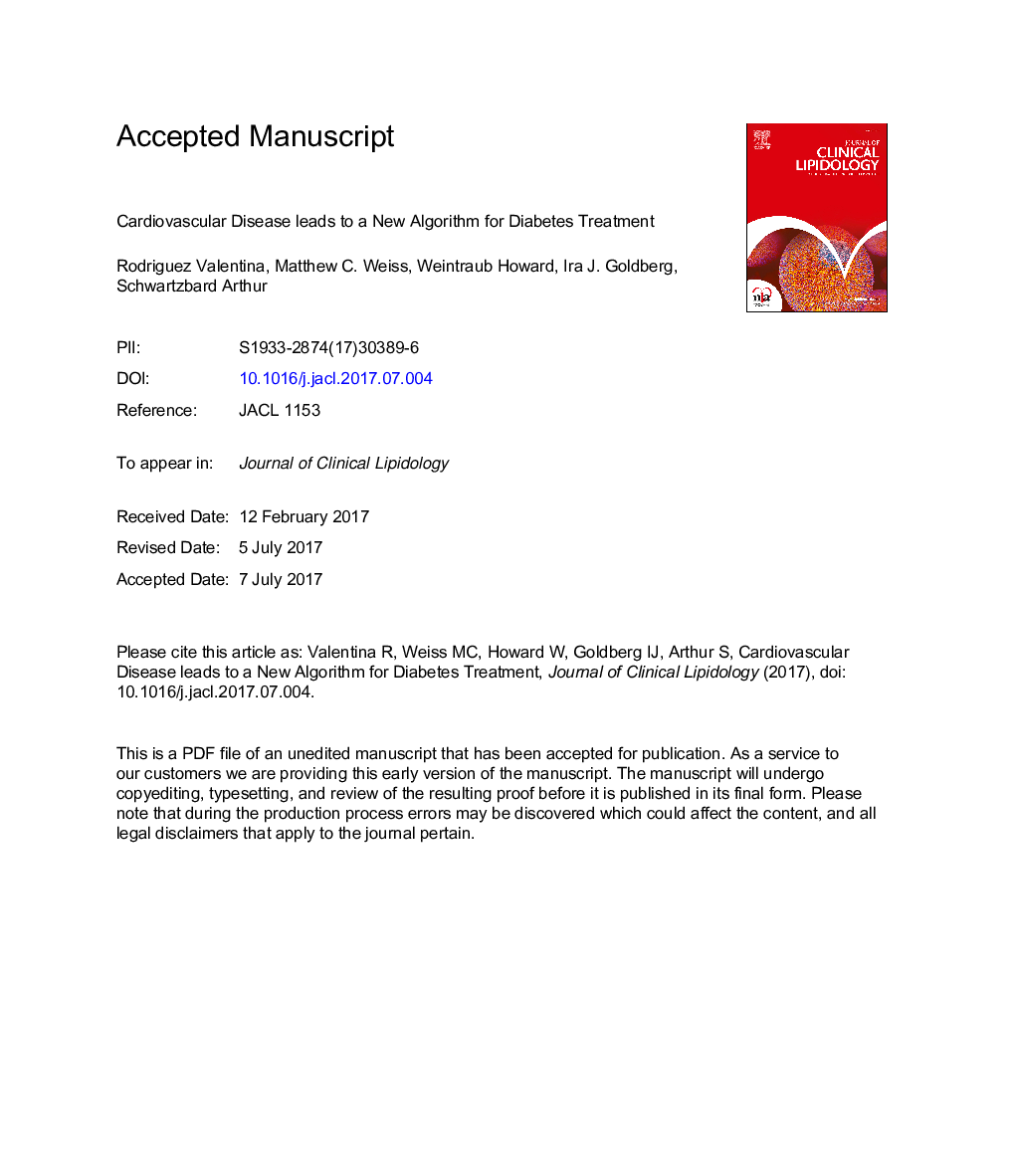| Article ID | Journal | Published Year | Pages | File Type |
|---|---|---|---|---|
| 5615093 | Journal of Clinical Lipidology | 2017 | 24 Pages |
Abstract
Patients with diabetes mellitus have increased rates of atherosclerotic cardiovascular disease (CVD) and heart failure (HF). This increase occurs despite optimal lipid-lowering therapies. We reviewed clinical trials of diabetes treatments and their effects on circulating plasma lipoproteins and CVD. Several earlier studies failed to demonstrate clear CVD benefit from diabetes therapies. In addition, triglyceride-reducing agents did not reduce overall CVD in large clinical trials although these trials were not conducted in cohorts selected as hypertriglyceridemic. Specific classes such as the thiazolidinediones increased HF. After Food and Drug Administration mandates for more rigorous safety data, recent studies have not only demonstrated CVD safety for many diabetes mellitus agents, but have also shown that certain newer medications such as empagliflozin, canagliflozin, liraglutide, and semaglutide reduce CVD. Moreover, pioglitazone use in insulin-resistant patients has resulted in decreased cerebrovascular and cardiovascular events, suggesting a protective vascular effect of this agent. Benefits from these newer classes of medications are unlikely to be because of improved lipoprotein profiles. These disparities in diabetes medication effects on CVD are likely attributable to each drug or drug class' cardiometabolic effects. Selecting medications based solely on their potential to lower hemoglobin A1C is an outdated therapeutic approach. We propose a new algorithm for treatment of patients with type II diabetes such that medication selection is based on the presence or risk of coronary artery disease and/or HF.
Related Topics
Health Sciences
Medicine and Dentistry
Cardiology and Cardiovascular Medicine
Authors
Valentina MD, Matthew C. MD, Howard MD, Ira J. MD, Arthur MD,
